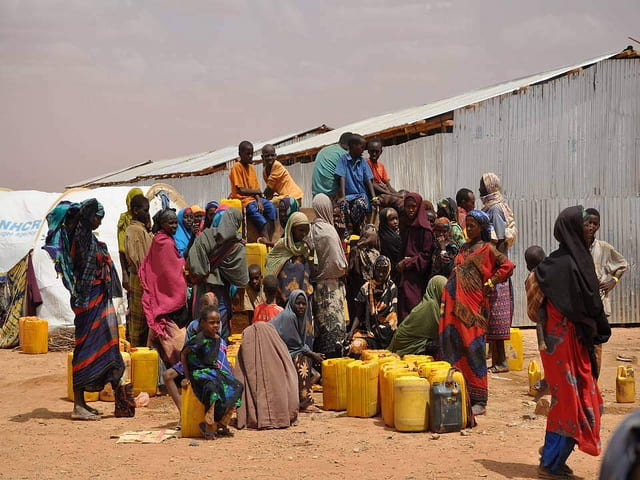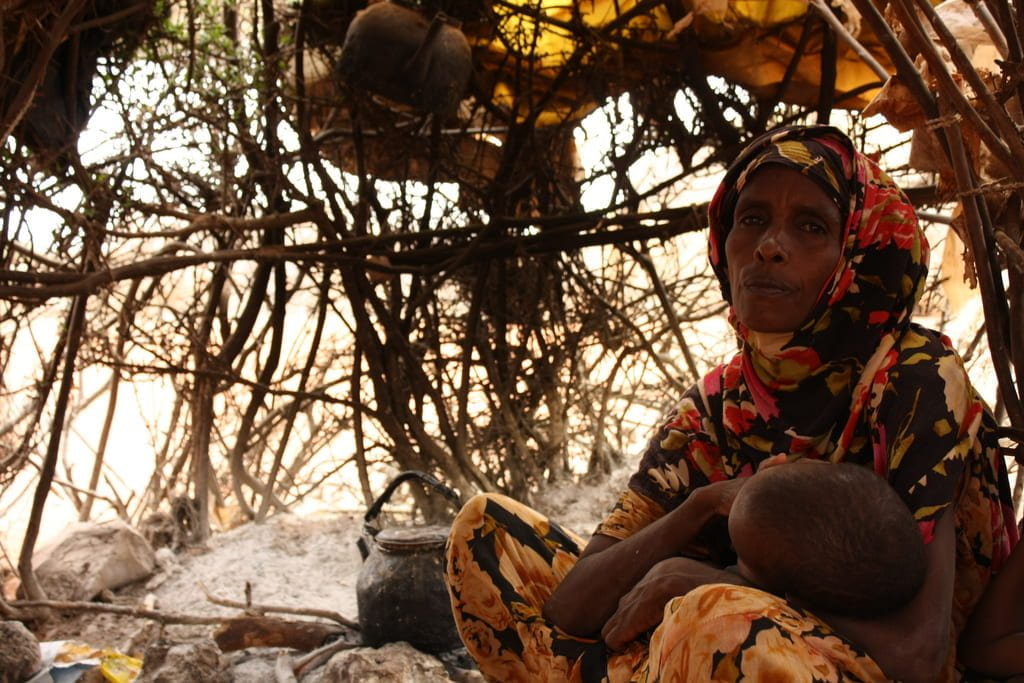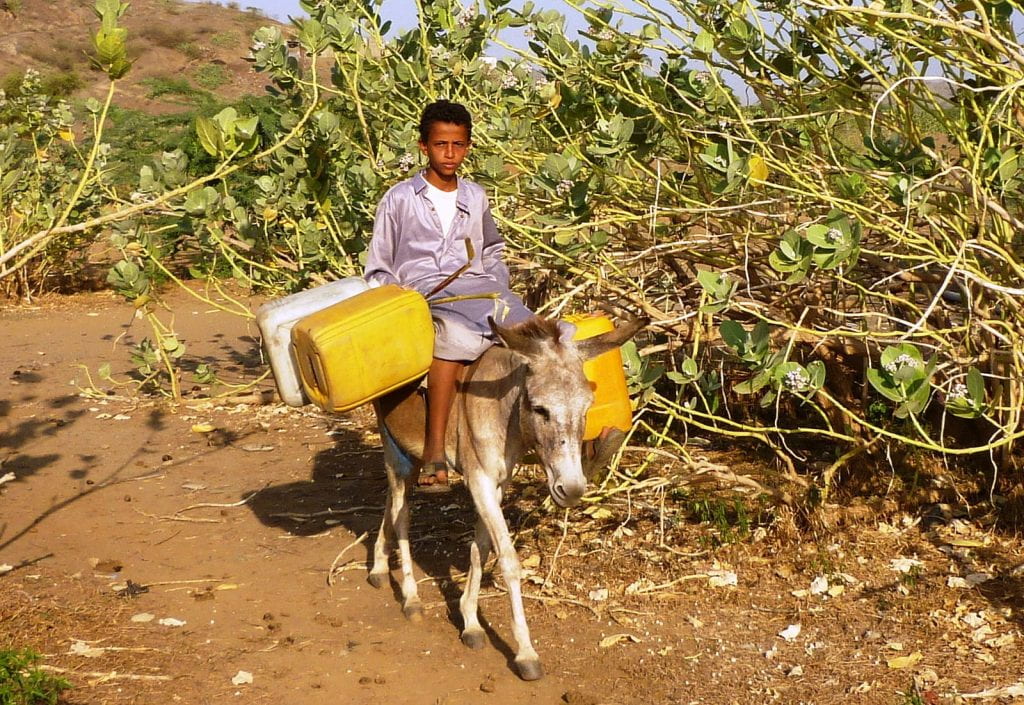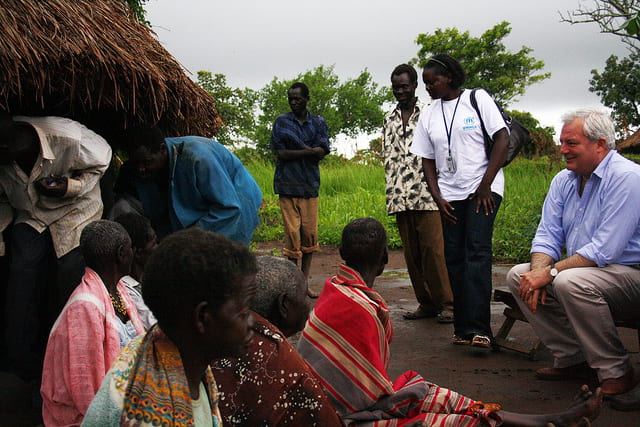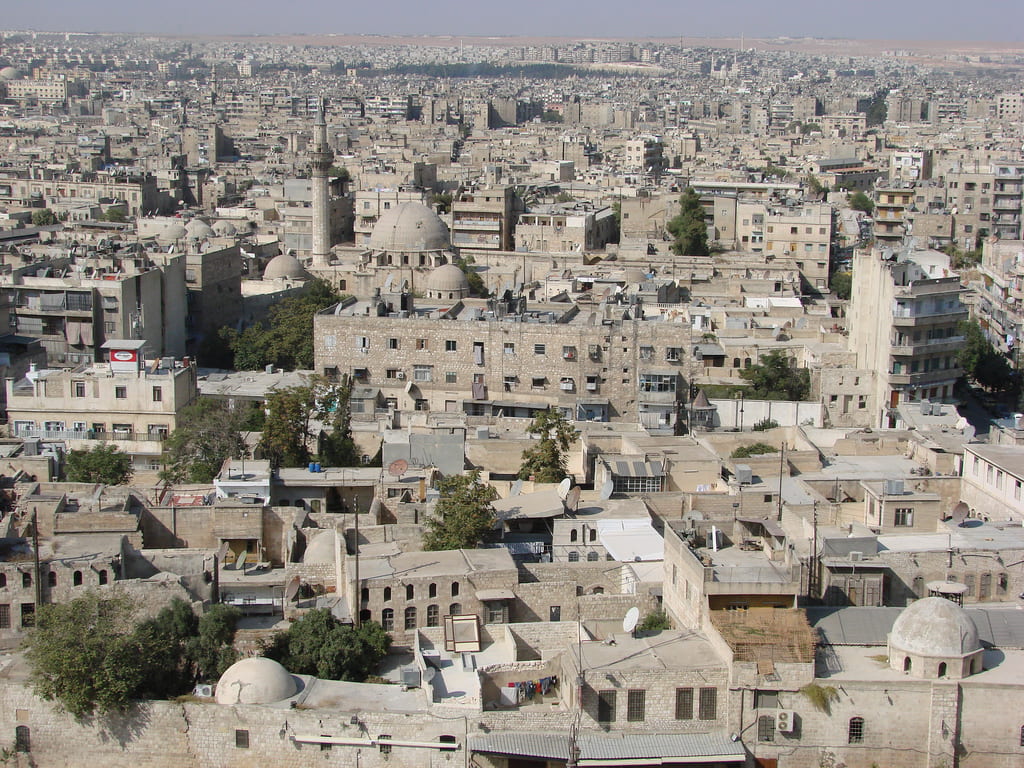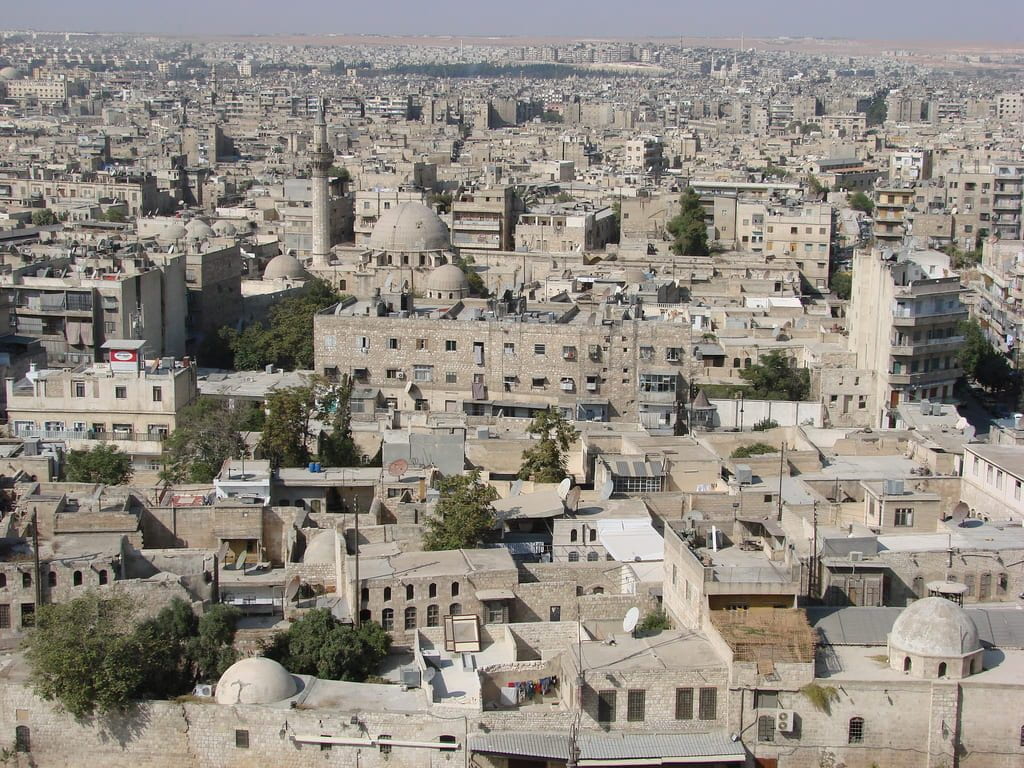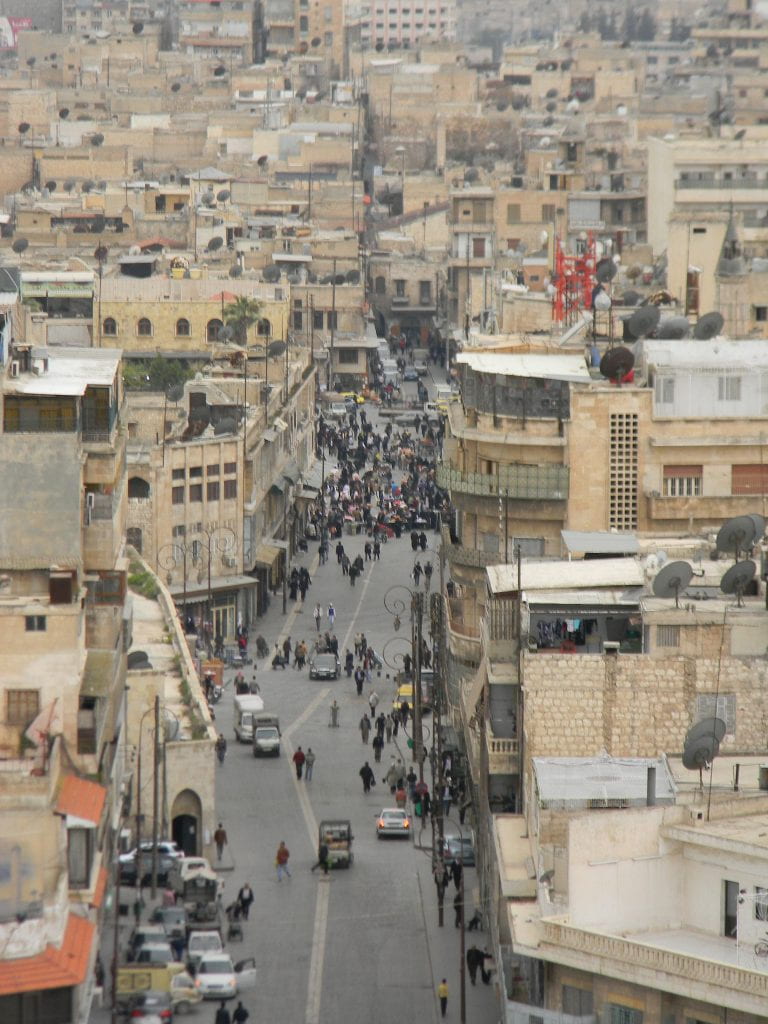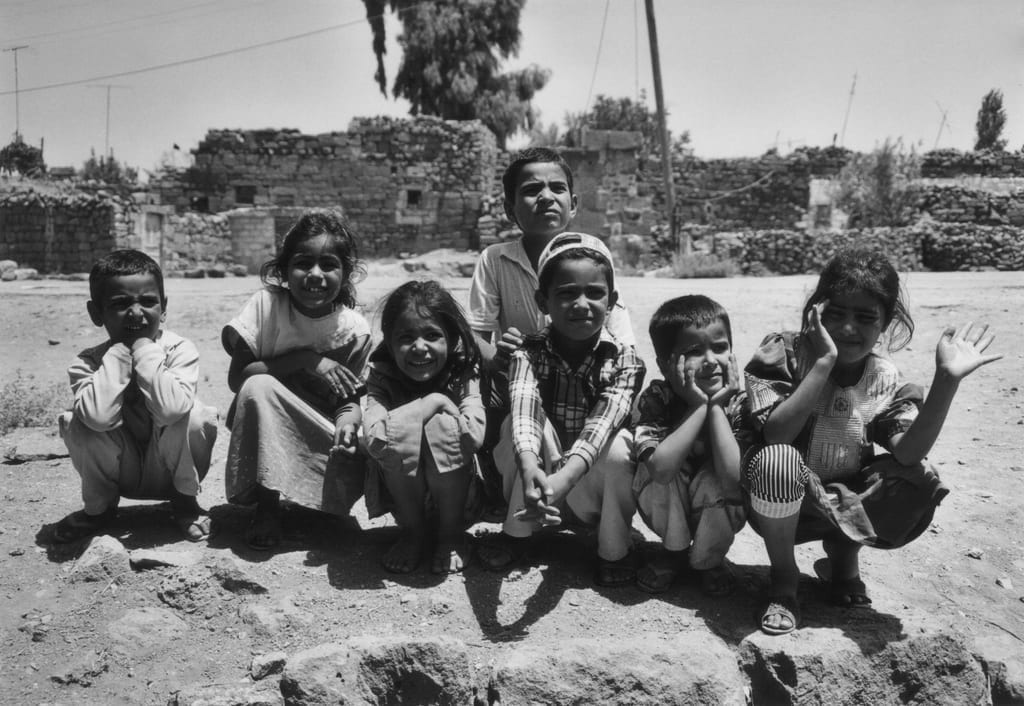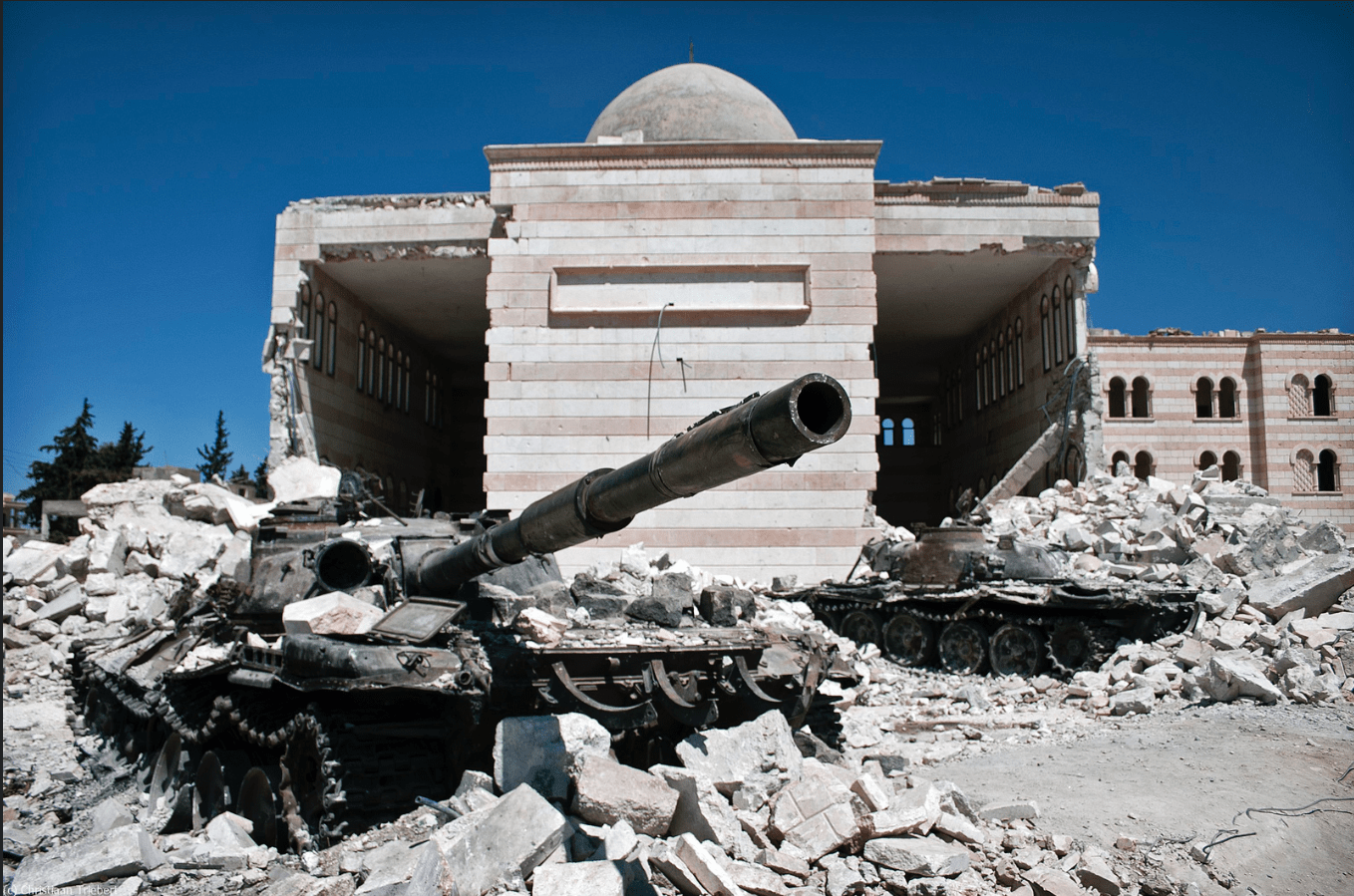
One of the worst chemical attacks turned a rebel-held area in the north of Syria into a death zone. Bombs were dropped from war planes in the early morning of April 4, 2017 and the spread of poisonous gas started shortly thereafter. Close to 70 people died, with pictures of dying children and grieving relatives going around the world. The Syrian military accused insurgents, but it seems clear that only the Syrian government has the ability to carry these types of bombings. Shock and condemnation was the reaction of governments and the public around the world. Two days later, President Trump ordered airstrikes, his first military action while in office.
Why this outcry and action now? People have been dying in Syria for months and years – think Aleppo – and the response has been, for the most part, fairly limited. We have seen dying children and assaulted women, airstrikes on civilian areas, and death and suffering everywhere. I would argue there are three reasons for this strong response, both in the public and in the political realm.
- The footage of the attacks themselves.
- The violation of most important rules of international law.
- A new administration in the White House.
Let me explain.

First and most obviously, it is the footage of children and older adults struggling to breathe, frothing at their mouths, and lying motionless in the mud as aid workers desperately try to help. It is the incredible grief by a father, who lost 22 members of his family in the attack, and who can be seen clutching the bodies of his 9-month-old twins. It is the level of individual suffering that most of us can relate to as human beings with families of our own, and the gruesomeness of the attack shakes us to the very core.
However, there is a second reason why this attack is cause for special consideration. The use of chemical weapons rises to the most serious violation of fundamental principles of international law: (1) the deliberate targeting of civilians is a crime against humanity, the “worst of worst crimes” and on par with genocide, and (2) the prohibition of the use of chemical weapons in warfare is one of the most widely acknowledged and respected rules of the international law of war.
Crimes against humanity are deliberate, systematic attacks against civilians or a significant part of the civilian population. Crimes against humanity were first described and prosecuted in the Nuremberg Trials at the conclusion of WWII and have since entered international criminal law as one of the major crimes for prosecution of individuals. While there is no international treaty specifically dealing with crimes against humanity, the Statute of the International Criminal Court lists mass murder, massacres, dehumanization, genocide, human experimentation, extrajudicial punishments, death squads, forced disappearances, recruiting of child soldiers, kidnappings, unjust imprisonment, slavery, cannibalism, torture, mass rape, and political or racial repression (e.g., apartheid) as crimes that reach the threshold of crimes against humanity if they are part of a widespread or systematic practice.
The prohibition of the use of chemical weapons has its origins in the late 19th century. Shortly after the establishment of the International Committee of the Red Cross (ICRC) in 1864 – the institution that oversees international humanitarian law, also known as the “law of war” – states decided to regulate and ban weapons that inflict excessive and unnecessary harm to the people affected by war (e.g., the Hague Declaration concerning Asphyxiating Gases of 1899). The horrific injuries sustained by soldiers from poisonous gas in WWI and experiences of both combatants and civilians in later conflicts (e.g., in Vietnam) accelerated these efforts, which resulted first in the Geneva Gas Protocol (1925) and then in the Chemical Weapons Convention (1993). The Chemical Weapons Convention prohibits the use of chemical weapons in all circumstances, which means in both international (meaning between states) and non-international war (any other type of conflict, including civil wars). Only 13 states have not signed either the Geneva Gas Protocol or the Chemical Weapons Convention (Syria is not one of them). The prohibition of chemical weapons is a universal norm, which means that it binds all parties to armed conflicts, whether state or non-state actors, as a rule of international customary law.
This ban of chemical weapons is strengthened by the fact that it is illegal under international humanitarian law to use weapons that do not distinguish between military and civilian targets. So-called indiscriminate weapons are those that cannot be directed at a military objective or whose effects cannot be limited. Similar to the prohibition of the use of chemical weapons, this rule is not only international custom, but has also been affirmed in various international treaties, including the statute of the International Criminal Court and the Additional Protocol to the Geneva Convention. The UN General Assembly and other UN organs have supported this principle in multiple resolutions and the International Court of Justice, the highest court in the world, reaffirmed the principle of distinguishing between civilian and military targets in the Nuclear Weapons advisory opinion (ICJ, Nuclear Weapons case, Advisory Opinion). While there is no definite list of indiscriminate weapons, the ICRC generally cites chemical, biological, and nuclear weapons, anti-personnel landmines, mines, poison, explosives discharged from balloons, cluster bombs, booby-traps, certain types of rockets and missiles, and environmental modification techniques.
In other words, the chemical attacks by the Syrian regime on its own population broke two fundamental rules of international law.
Third, we have a new administration in the White House whose policy towards Syria and the Middle East is most likely to be very different than the one of its predecessor (it is too early to tell for sure). President Trump expressed that the use of chemical weapons in Syria “crossed a lot of lines for me” and changed the way in which he views the Syrian dictator Bashir Al-Assad. The decision to use airstrikes against Syria was made shortly thereafter. President Trump’s words, and in some way, his actions, remind us of President Obama’s reaction to the use of chemical gas against civilians in Syria in 2013. President Obama, who used the word “red line” in connection with the 2013 attack, also contemplated air strikes. However, in an unexpected turn around, Obama decided to seek congressional approval for military action against Syria. The proposed bill never received a floor vote because the Syrian government accepted a U.S.-Russian deal to turn over its chemical weapons stockpile and sign and ratify the Chemical Weapons Conventions.

What does this mean? Were the airstrikes legal? What are the political consequences? From a legal point of view, the situation is complicated, but more easily explained. Under international law, the use of force against another state is illegal, unless it is in self-defense, authorized by the UN Security Council, or on the invitation of the state affected. Security Council authorization is unlikely to happen considering that Russia is a veto-power holding member of the Security Council and has made it clear that it does not see the need for a condemnation of the attack. The U.S. has not given any indication that the airstrikes were in self-defense. Syria has certainly not invited the U.S. to strike its airbase. So, in most interpretations of international law, the airstrikes are illegal. President Trump said in a press conference in the evening of April 6 that “it is in this vital national security interest of the United States to prevent and deter the spread and use of deadly chemical weapons,” which could hint at a future justification of the airstrikes within framework of self-defense. There is some discussion over whether the unilateral use of force on behalf of civilians, also known as humanitarian intervention, should be seen as legitimate, if not legal. However, considering the situation in Syria and the U.S. military involvement against the Islamic State, Russia’s engagement, and the geopolitical situation, it would be very difficult for the U.S. to argue for a purely humanitarian justification of U.S. action. While the airstrikes authorized by President Trump were very limited – hitting a somewhat remote airbase – and no formal declaration of war has been made, Syria could very well see the airstrikes as an informal act of war.
Under U.S. law, the President may authorize military action for defense, but not for offensive wars. Offensive wars require congressional approval. Congressional approval was given for military action after the 9/11 attacks, which gives the President far reaching authority to combat terrorism. The Obama administration has interpreted this rule to include and authorize the fight against the Islamic State, and so far, the Trump administration seems to go along with this interpretation. Regardless, a war against Syria, a state, not a non-state actor, is a completely different beast. A war against Syria would most certainly need congressional approval, and members of Congress have already called for the administration to bring any future military action before Congress.
In terms of political consequences, it’s too early to tell if this was a one time engagement and what the Trump administration will do next. Russia’s involvement in Syria complicates matters as not only U.S.-Syrian relations, but also U.S.-Russian relations are at stake. Russia has reacted strongly and called the airstrikes a “significant blow to Russian-U.S. relations.” Either way, an in depth discussion of strategy will be important, especially considering that interventions tend to be much more complex and complicated endeavors than they first appear. America, as many countries before her, has learned this the hard way. And if we really want to help the “beautiful babies” in Syria, as President Trump claims, we need to open our borders to allow Syrian refugees to find safety.
However, while these discussions over legality and Russia-U.S. relations are certainly important, they are not sufficient. What we need to focus on is the question over what the consequences of military action will be. We cannot be distracted from what has to be the end goal: a political settlement of the conflict. Only a termination of violence and war will end the tremendous suffering of Syrian children, women, and men. Any military action has to be judged on whether it advances or hinders an end to the conflict.
